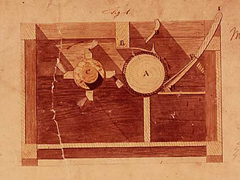 Patents were originally designed to encourage creativity, but in the digital world they may be having the opposite effect. This engaging episode of public radio’s This American Life takes us inside the trenches of the intellectual property wars.
Patents were originally designed to encourage creativity, but in the digital world they may be having the opposite effect. This engaging episode of public radio’s This American Life takes us inside the trenches of the intellectual property wars.
Category: 10.5 Human Questions for a Computer Age
This year Watson, an IBM computer, beat two champions on TV’s Jeopardy. This PBS Nova program goes behind the scenes and explains how Watson’s creators pulled it off.
In an age when “friend” is a verb, many of us have hundreds of social-network friends. But Oxford Anthropologist Robin Dunbar’s research suggests that we’re wired to max out our meaningful relationships at about 150. This NPR story has details. Can technology help us break Dunbar’s limit, and is that a worthwhile goal?
The computer industry is trying to green up its act by creating more energy-efficient products. But according to David Moschella in his Computerworld column, computer manufacturers need to take a hard look at what happens to our tech tools and toys when we discard them and move on to newer devices.
The_Green_IT_movement_has_lost_the_plot
The_Green_IT_movement_has_lost_the_plot
Who owns your data? If somebody else collects information about you, should you have the legal right to see and use that information? New York Times Columnist Richard Thaler argues that consumers and businesses alike would benefit from laws ensuring that you have access to your information.
Read on New York Times site
Two people sitting next to each other in a coffee house can get wildly different results from the same Google search. Many Facebook users see only posts from friends who agree with them because Facebook is hiding posts from other friends. These two sites, and many others, use filtering software to personalize our Web experience. In this short, thought-provoking talk, Eli Pariser said this software is rapidly creating a world in which “the Internet is showing us what it thinks we want to see, but not necessarily what we need to see.”
[ted id=1091]